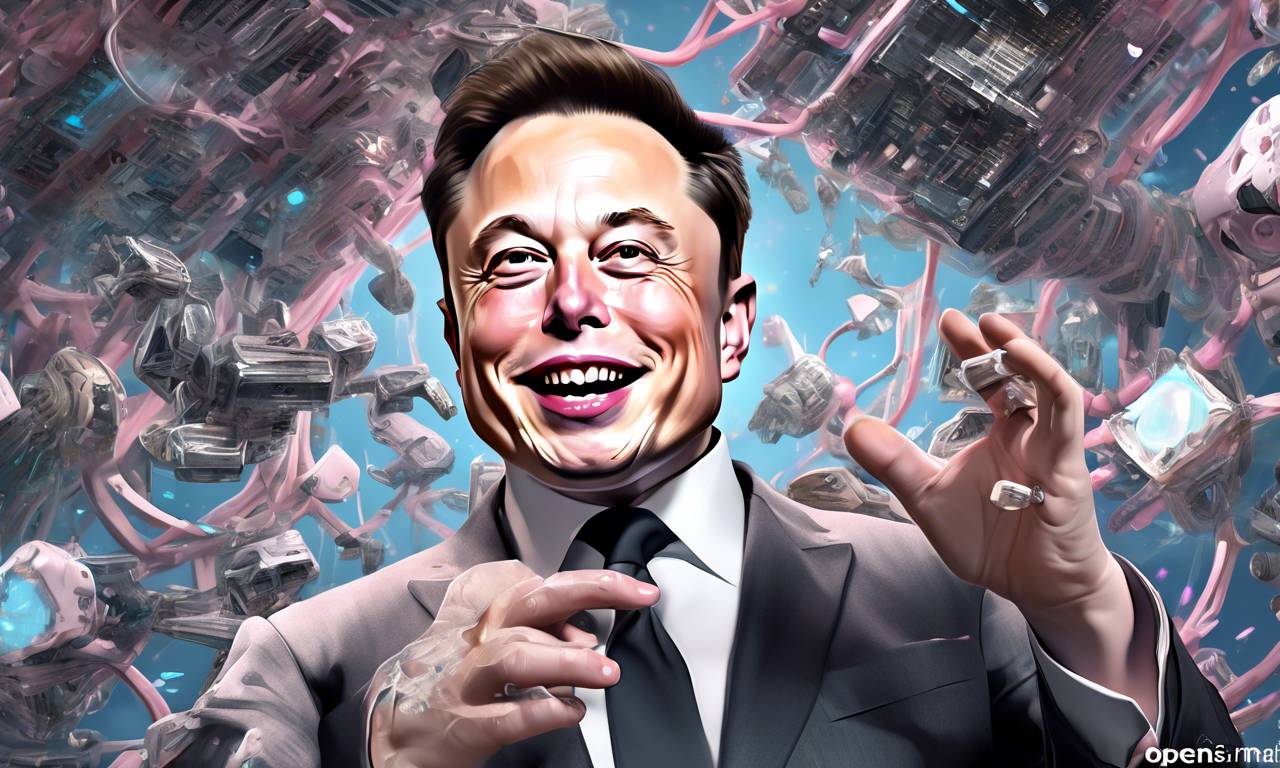Elon Musk Lawsuit: OpenAI Clarifies Non-Profit Agreement
In a recent blog post, OpenAI addressed the lawsuit filed by Elon Musk against the organization and its CEO, Sam Altman. The blog post clarifies that Musk himself had approved OpenAI’s transition to a for-profit entity and acknowledged the need to raise substantial funds to compete with companies like Google.
Elon Musk’s Attempt to Integrate OpenAI into Tesla
The blog post reveals that Musk’s actions were motivated by his unsuccessful attempt to integrate OpenAI into Tesla Inc. The co-founders of OpenAI, including Altman, Brockman, and Sutskever, expressed their disappointment in Musk’s actions, stating:
“We’re sad that it’s come to this with someone whom we’ve deeply admired – someone who inspired us to aim higher, then told us we would fail, started a competitor, and then sued us when we started making meaningful progress towards OpenAI’s mission without him.”
The blog post also includes emails from Musk showing his support for OpenAI’s fundraising efforts. In one email, Musk wrote, “This needs billions per year immediately or forget it.”
Despite Musk’s contribution of less than $45 million to the non-profit, OpenAI was able to secure over $90 million from other donors. The emails highlight Musk’s push for the company to pursue more ambitious fundraising goals. Initially aiming for $100 million, Altman and Brockman were urged by Musk to seek even larger amounts. In one email, Musk suggested starting with a $1 billion funding commitment and offered to cover any shortfall.
Musk’s Concerns about OpenAI’s Partnership with Microsoft
Musk’s lawsuit alleges that OpenAI’s partnership with Microsoft has deviated from its original mission of developing open-source technology free from corporate influence. Despite OpenAI’s commitment to ensuring that artificial general intelligence (AGI) benefits humanity, Musk claims that the organization has become a closed-source subsidiary of Microsoft.
OpenAI, however, asserts that Musk himself approved the decision not to develop open-source software for AGI and not to always share the science behind its technological advancements. An email from 2016 cited by OpenAI indicates that Musk agreed with the idea of being less open as AI development progressed.
In response to Musk’s claims, OpenAI’s co-founders point out that Musk had previously acknowledged the importance of corporate influence at OpenAI. They suggest that Tesla was seen as the only potential competitor to Google, albeit with slim odds of success.
Hot Take: Elon Musk’s Lawsuit Against OpenAI Raises Questions
Elon Musk’s lawsuit against OpenAI has sparked debate and raised questions about the organization’s direction and partnership with Microsoft. While Musk’s concerns about corporate influence are valid, it is important to consider the context and previous agreements made by all parties involved.
The Need for Funding in a Competitive Landscape
Musk’s insistence on raising billions of dollars for OpenAI reflects the intense competition in the field of artificial intelligence. Companies like Google have significant resources dedicated to AI research and development, making it crucial for OpenAI to secure substantial funding to remain competitive.
The Challenge of Balancing Openness and Corporate Influence
The tension between open-source development and corporate influence is a complex issue in the AI community. While OpenAI initially aimed for openness and sharing of scientific advancements, there may be valid reasons for adopting a more closed approach as technology progresses. Striking a balance between openness and protecting intellectual property is a challenge that many organizations face.
Musk’s Role and Expectations
Elon Musk’s role as a co-founder and early supporter of OpenAI cannot be understated. His contributions, both financially and intellectually, have been significant. However, it is crucial to recognize that decisions about the organization’s direction and partnerships are made collectively by its leadership team.
Conclusion
The lawsuit initiated by Elon Musk against OpenAI has shed light on the complexities of navigating the AI landscape. While Musk’s concerns about corporate influence are valid, OpenAI has clarified that Musk himself approved the organization’s transition to a for-profit entity and acknowledged the need for substantial funding. The challenge lies in striking a balance between openness and protecting intellectual property in an increasingly competitive field.





 By
By
 By
By
 By
By
 By
By

 By
By